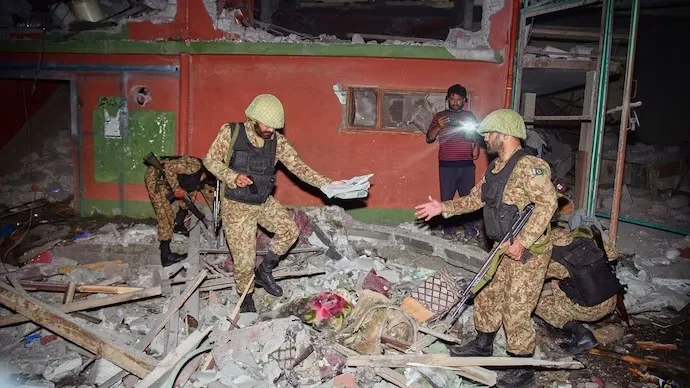India launched military strikes on Pakistan early Wednesday in a major escalation between the nuclear-armed neighbors, prompting Islamabad to claim it shot down five Indian Air Force jets. The development has pushed both countries to the brink of a wider conflict, with global leaders urging restraint.
The strikes, dubbed “Operation Sindoor,” were carried out in retaliation for the April massacre of 26 people—mostly Indian tourists—at a scenic site in Indian-administered Kashmir. New Delhi blames Pakistani-based militants for the attack, though Islamabad has denied any involvement.
India’s operation
According to Indian officials, the strikes targeted nine locations across Pakistan and Pakistan-administered Kashmir linked to militant groups Lashkar-e-Tayyiba and Jaish-e-Mohammed. Authorities claimed the 25-minute mission avoided civilian, economic, or military infrastructure.
The operation’s name, “Sindoor”—a red powder symbolizing marriage in Hindu tradition—appears to reference the women widowed in the April massacre, which targeted male tourists.
Pakistan, however, accused India of hitting civilian areas, including mosques, and reported casualties. A military spokesperson said 24 strikes hit six locations, including Punjab province—marking the deepest Indian strikes inside Pakistan since the 1971 war. These claims have not been independently verified.
Pakistan’s response
Pakistani security sources claimed to have shot down five Indian jets, including three of the prized French-made Rafale fighters, and one drone. While images surfaced of wreckage in Indian-administered Kashmir, CNN has not verified the origin of the aircraft. India has yet to confirm any losses.
Pakistani Prime Minister Shehbaz Sharif labeled the strikes “an act of war” and vowed retaliation, asserting that Pakistan “has every right” to respond.
Civilian toll
Pakistan reported at least 26 civilian deaths and 46 injuries, including children as young as three. Meanwhile, Indian officials said Pakistani shelling killed eight civilians on their side of the Kashmir border.
As tensions escalate, the risk of broader conflict between the two nations—both of which have fought multiple wars over Kashmir—remains dangerously high.


